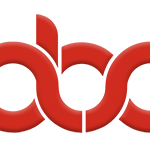In-House vs. Remote AI Developers for Hire: Which is the Right Choice?

Introduction
AI is the new frontier for many business operations, serving as a foundation for automation, analytics, and improved customer engagement. However, as businesses try to embrace AI, there is a fundamental question that needs to be answered: build an in-house AI development team or hire an external AI developer? Each option has its advantages and challenges, and the right choice depends on the level of complexity of the project being undertaken, budget availability, and collaboration requirements. The aim of this blog is to analyze the in-house vs. remote AI developers’ scenario to assist you in the selection that best serves your needs.
1. In-House AI Developers: Pros & Cons
Pros of Hiring In-House AI Developers
– Direct Communication & Collaboration – Transparency leads to the direct exchange of information, which, in turn, fosters teamwork and better organizational culture as well as swifter decision making.
– Business Goals Achieved – With a focus on culture and long term initiatives, Developers are active participants in company projects that greatly increases integration with business objectives.
– Quick Iterations & Feedback Loops – Working together speeds up the feedback and get AI models implemented in the workplace faster.
– Better Security & Compliance – Organizations have more control over sensitive information resulting in less security threats with local in-house teams.
Cons of Hiring In-House AI Developers
– Relatively Less Cost Effective – Maintaining an in-house team incurs high salary expenses, along with added costs for infrastructure, effective employee benefits, and office space.
– Geographical Constraints – The businesses might be able to locate an AI Expert in the adjacent periphery, but not someone who has the calibre that they need.
– Recruitment Takes Too Long – Finding an AI expert and guiding them through the training period requires time at which the project cannot be executed.
2. Remote AI Developers: Pros & Cons
Pros of Hiring Remote AI Developers
– No Geographical Limitations – When hiring an AI developer, businesses can recruit someone from anywhere on the globe.
– Lower Hiring Costs and In-House Expenses – Remote employees do not require the same office space and infrastructure as in-house employees to perform their duties.
– Quick Access to Skilled Employees – Businesses can contact and onboard AI developers through an outsourcing company and even freelance websites.
– Scalability & Flexibility – The company has the option to adjust the size of their AI development team to fit their needs without long term commitments.
Cons of Hiring Remote AI Developers
– Communication Problems – Different time zones and the use of remote collaboration tools can create problems with communication.
– Security & Data Privacy Risks – Sending confidential business information to a remote team can raise security issues.
– Limited Supervision & Control – There is a higher need for efficient project management and communication tools to manage remote AI developers.
3. Key Factors to Consider When Choosing the Right Model
1. Project Complexity – If your project requires ongoing AI model optimization, an in-house team may be beneficial. For short-term projects, remote AI developers can be a cost-effective option.
2. Budget Constraints – If you are a startup or small business, hiring remote AI developers can save significant costs.
3. Collaboration Needs – If your AI development requires close collaboration with other teams, in-house hiring may be preferable.
4. Security & Compliance – If your AI project involves handling sensitive customer data, an in-house team may offer better security controls.
Conclusion
Both models have their pros as well as cons in relation to in-house AI developers and remote AI developers.
In-house teams allow for better control and security, whereas remote developers offer flexibility, cost savings, and access to a larger talent pool. The decision is usually made based on the business needs, level of complication, and available budget.
If you’re interested in AI developers for hire, AnsiByteCode has experienced professionals who will help build any AI solution your business needs. Get in touch with us so we can help you find the model that suits your business best!

Ansi ByteCode LLP
Ansi ByteCode LLP has developed an exceptional reputation within the Global IT industry. The company was launched in 2014 and since then, it has been a thriving center with our tagline “Articulate Business With Code”. We presently utilize Microsoft Technologies and proudly hold the status of a Microsoft Solution Partner for Digital & App Innovation, as well as Data & AI. We are a dynamic team comprised of dedicated professionals and continue to expand our capabilities and reach.

